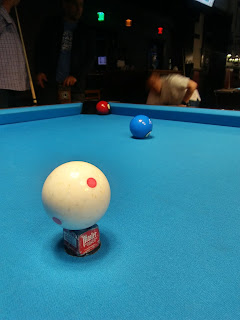Getting the Cattle to Abilene as a Conceptual Skeleton - on Writing and Diversity
Social rules and cues exist to herd us along the road to Abilene, in this case meaning where Society wants to go, the marketplace where cattle will be deemed of some value. Cattle that never get to Abilene have no assigned value.
Our protestations stand mute and don’t defend us in situations where we don’t want to be defensive: We want so much, just this once, to fit in. So instead of jumping into the conversation, we run an eternal slideshow against the back wall, looking for a similar scenario with a positive outcome so we’ll have a template upon which to act.
But if I’ve done my job right, there isn’t a similar scenario.
I’ve tried to throw myself into uncharted territory. At some point I have to just turn up the house lights and assess what's in front of me. Now the game becomes something like that one at the fair: swarms of ducks are floating by, and I try to catch one to see what’s written on the bottom.
I believe in conceptual skeletons. Something rushing by will have a similar shape and heft to something I know intimately – and I do believe in the things I know as much as I believe I have the right to be wrong.
I think the point of conceptual skeletons as defined in GEB (Gödel, Escher, Bach) is that you can talk about a subject you don’t understand, much like you can talk about a book you haven’t read. I don’t get any of the math, but eventually someone applies it to something I do know, or it pings a correlation I can see only in my mind. I find my art in drawing connections where you may not see them (and they may not exist on our plane.) There are silly people who sit around waiting for me to force unexpected similarities. Like an oracle.
Honestly, I’ll be happy if you just spewed philosophy that seemed tangential to what anyone just said, whether it was truly applicable or not. I'm easy.
This blog post started out (like many do) as a letter to a friend. While typing I was listening to a young student of poetry trying to explain a poem by Lisa Alletson. Lisa is very dear to me. She started taking her writing seriously on my birthday, and that's the best gift ever.
Taylor was assigned Lisa's poem "Eating Summer With a Pitchfork." They made a video of their attempt at explanation, and it is unedited, raw, beautiful. This is a rare opportunity to watch a young person's mind at work.
Eating Summer With a Pitchfork: A Poem Discussion
While I was typing to my friend, Taylor hit the gist of everything:
Don’t let your mind tell you that you’re not enough, because you are. And you’re doing your best, I feel it...and we’re gonna make it through... That’s pretty fucking cool, guys.
Harry Youtt teaches for the UCLA Extension Writers' Program. He co-instructed as a team with his wife Judith Simon Prager remotely at the Palm Springs Public Library in 2001. Please enjoy his poem Sweat Lodge at Sheila-Na-Gig Online.
Taylor - he/they Subscribe to this young wonder's YouTube channel, and follow them on Twitter. Watch the kids inherit the earth.
Eating Summer With a Pitchfork - Lisa Alletson on Medium You can find Lisa all over the internet. Google her - I can't keep up. You'll be glad you did. She's a rare mind.
Gödel, Escher, Bach: An Eternal Golden Braid - Douglas R. Hofstadter This is the book that started my book club. It's odd and delightful to be an integral part of something you don't understand.
How to Talk About Books You Haven't Read - Pierre Bayard (translated by Jeffrey Mehlman) Howard from book club says this really works. You have to first categorize why you haven't read the book (you didn't know about it, or you didn't like it, for example.) This book, assuming you read it, will tell you how to proceed.
Why It's Good to Be Wrong - Nautil.us Embrace that shit, seriously.











Comments
Post a Comment
Please comment. Just Don't be a dick. Please subscribe to this blog. Email confirmation will be sent - please verify your decision to receive my validations.